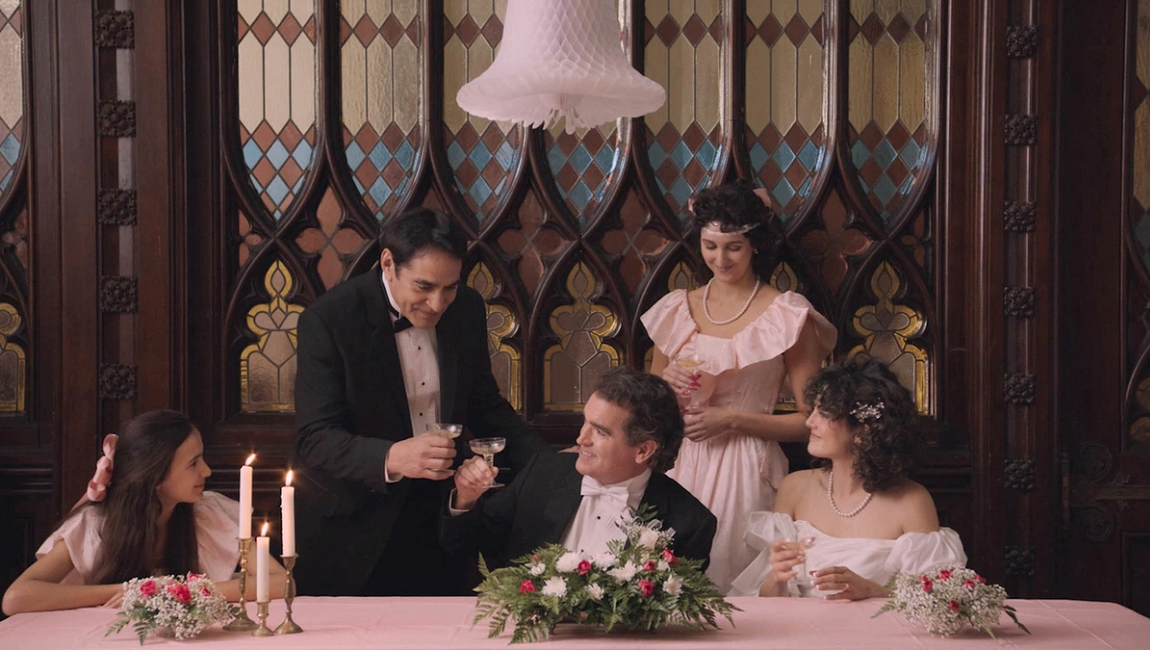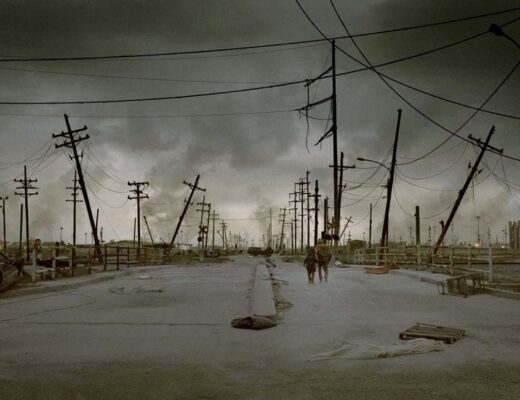The Cathedral is D’Ambrose’s portrait of the artist as a young man, a bracingly vigorous work and a precise survey of emotional turmoil.
After a series of accomplished shorts and one medium-length feature, the magnificently opaque Notes on an Appearance, Ricky D’Ambrose has returned with The Cathedral, a loosely autobiographical saga surveying two decades in the life of a dysfunctional family. As Phil Coldiron has pithily stated, “D’Ambrose, for his part, believes unfashionably in art,” an assessment borne out by D’Ambrose’s fidelity to classic modernist influences — “Bresson, Resnais, Antonioni, Duras, Akerman,” according to Coldiron. But Michael Sicinski has suggested a more contemporary bedfellow, namely German filmmaker Angela Schanelec. Indeed, The Cathedral can sometimes play like an academic exercise, albeit a fascinating one. By deemphasizing traditional performances and largely eschewing shot-counter-shot and continuity editing, D’Ambrose is one of our few young, contemporary filmmakers really thinking about how to sequence shots and confer meaning through images. Beginning with a monotone female voiceover, the film unfurls a complicated familial genealogy, charting a phalanx of grandparents, parents, aunts, and uncles, leading to the marriage of Richard (Brian d’Arcy) and Lydia (Monica Barbaro), who will in turn conceive the film’s ostensible protagonist, Jesse (played at age 12 by Robert Levey II and as a teenager by William Bednar-Carter).
The film’s precise structure presents one isolated scene at a time, in chronological order, jumping from year to year as archival footage of momentous events are inserted between the narrative fragments to chart the passage of time. We see the first WTC bombing in 1993, footage of Hurricane Katrina, and miscellaneous period-specific commercials and news broadcasts. These brief interjections function as a marked formal contrast to the fictional story that is unfolding, as D’Ambrose favors static master shots and precise framings, zeroing in on small details that act as synecdoches for unseen moments. Taking Bresson’s axioms on sound and image to heart, D’Ambrose constructs an entire secondary world through implied, offscreen space and careful deployment of sound. InRO contributor Morris Yang says that it “feels akin to flipping through a family album, examining the foundations, structures, and seams,” an impression articulated throughout via D’Ambrose’s emphasis on clipped, brief interactions. Family dynamics and interpersonal conflict are only alluded to, or established after the fact.
Richard gradually emerges as a foolish egomaniac who mismanages money and alienates his wife’s extended family. For her part, Lydia remains mostly an enigma, particularly once she and Richard divorce and both remarry, the addition of step-parents further complicating the plot. For all it’s formal austerity, what Lawrence Garcia has dubbed D’Ambrose’s “archival sense,” The Cathedral gradually opens up once Jesse reaches high school and begins experimenting with filmmaking. One can only assume that D’Ambrose has the most insight into these scenes, as they are based largely on his own coming of age. The filmmaker has occasionally inserted old video footage of his own making into his shorts, and there are interludes here that are likely from the same cache of that years-old material. At one point, teenaged Jesse speaks to his class about an old family photograph, detailing how the light on the floor made an impression on him, as it reflects across various other surfaces in the photo. The Cathedral, then, reveals itself ultimately to be about how we use images to organize our memories, how we make sense of our lives through the gradual accumulation of information, photographic or otherwise. It’s a bracingly vigorous work, occasionally alienating but precise in its survey of emotional turmoil. Call it D’Ambrose’s portrait of the artist as a young man.
You can currently watch Ricky D’Ambrose’s The Cathedral in theaters or streaming on Mubi beginning on September 9.
Originally published as part of Sundance Film Festival 2022 — Dispatch 1.







